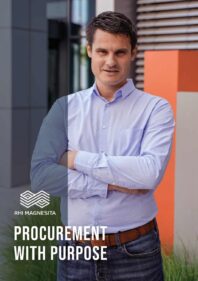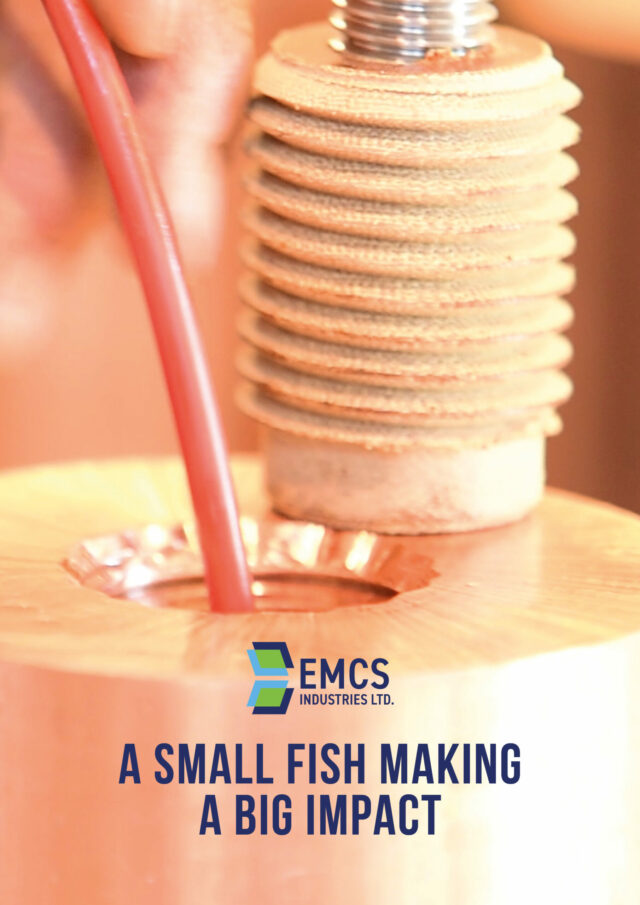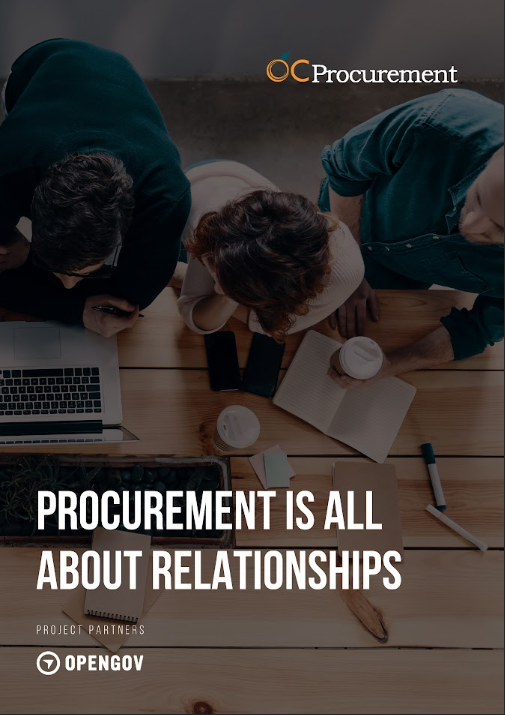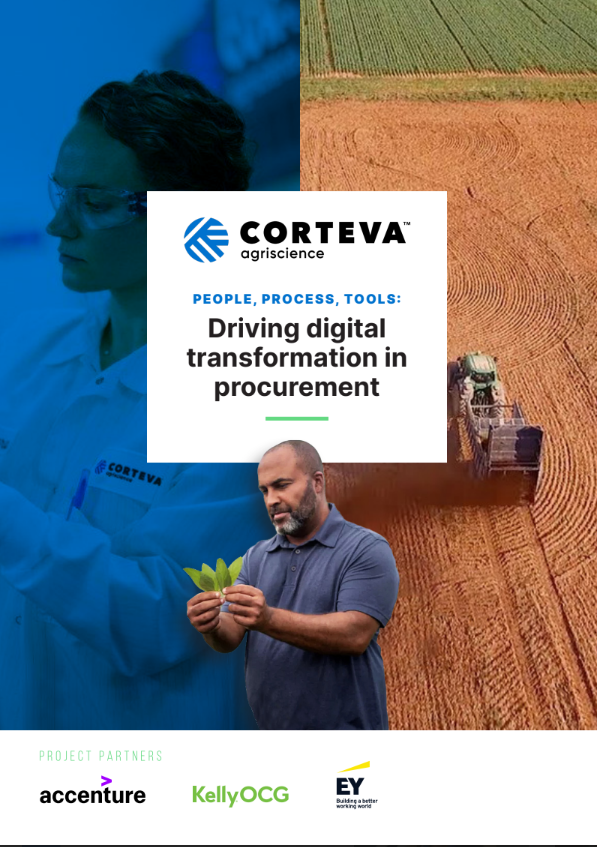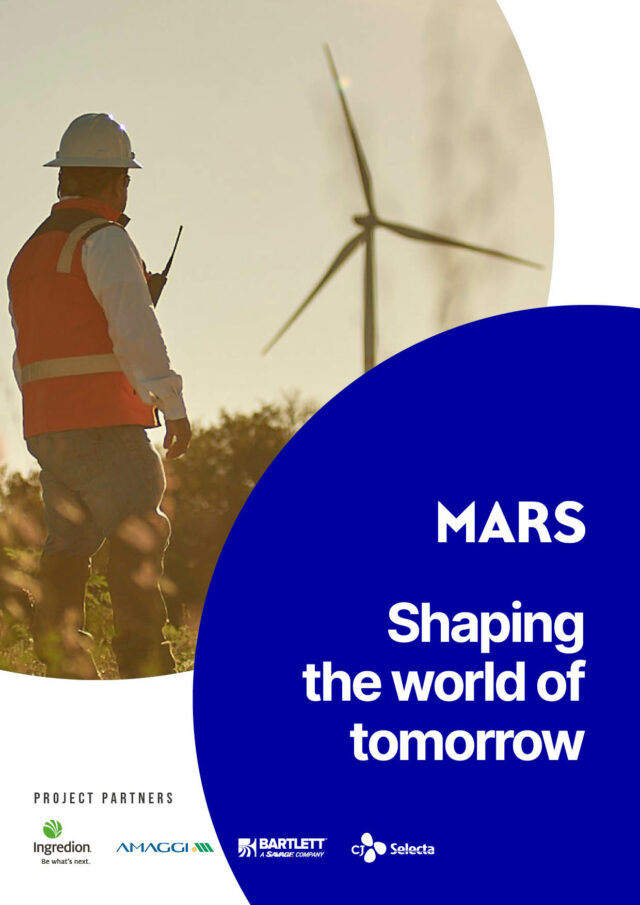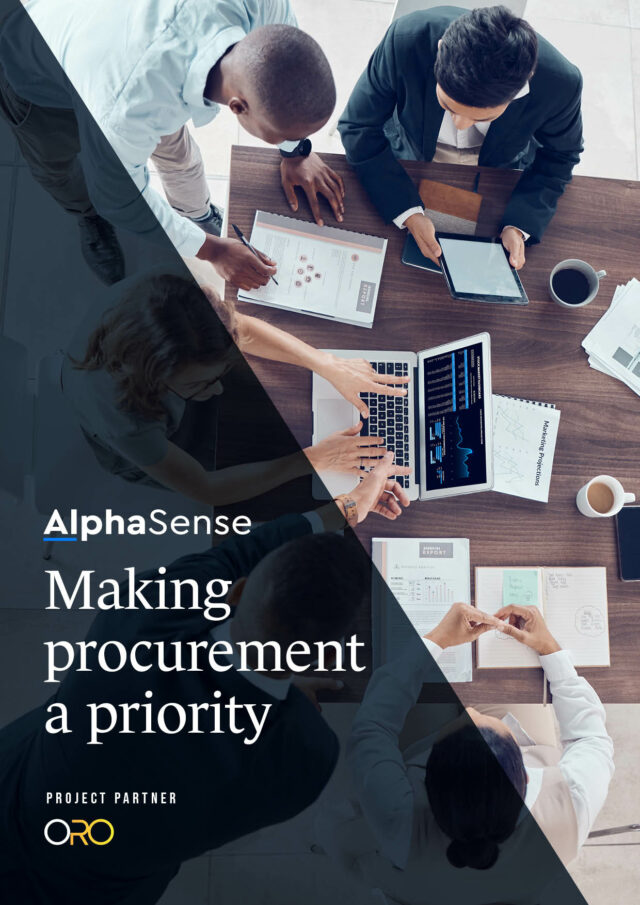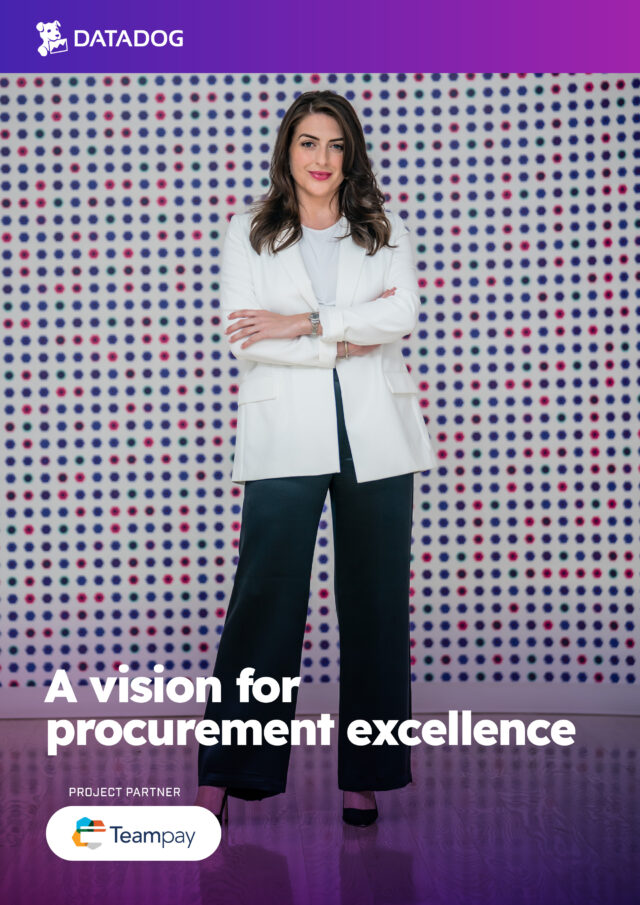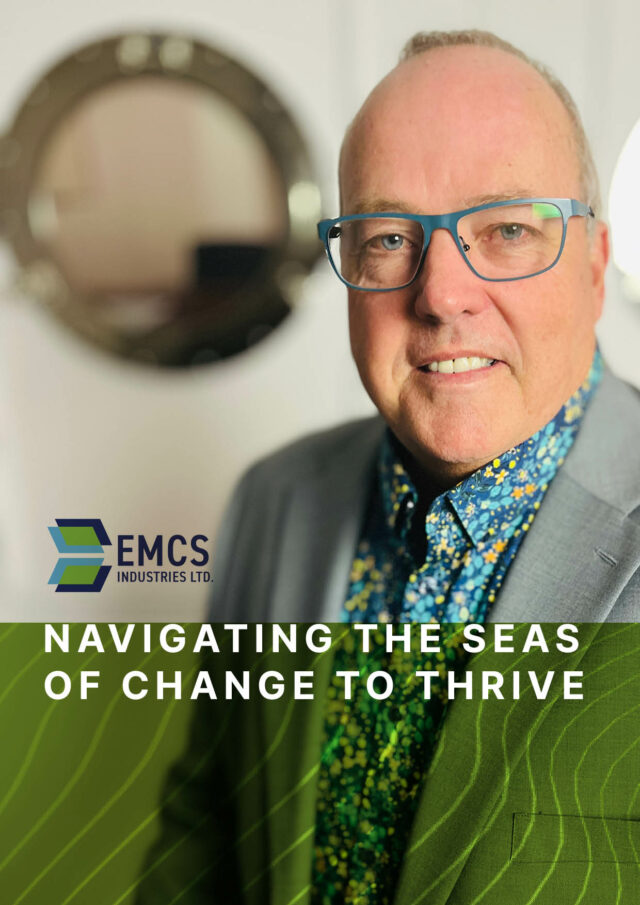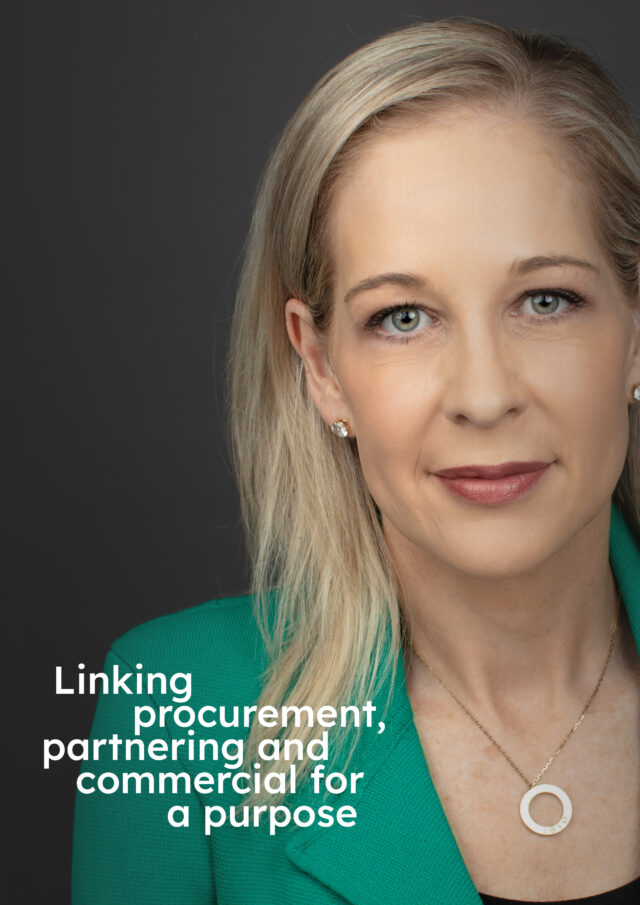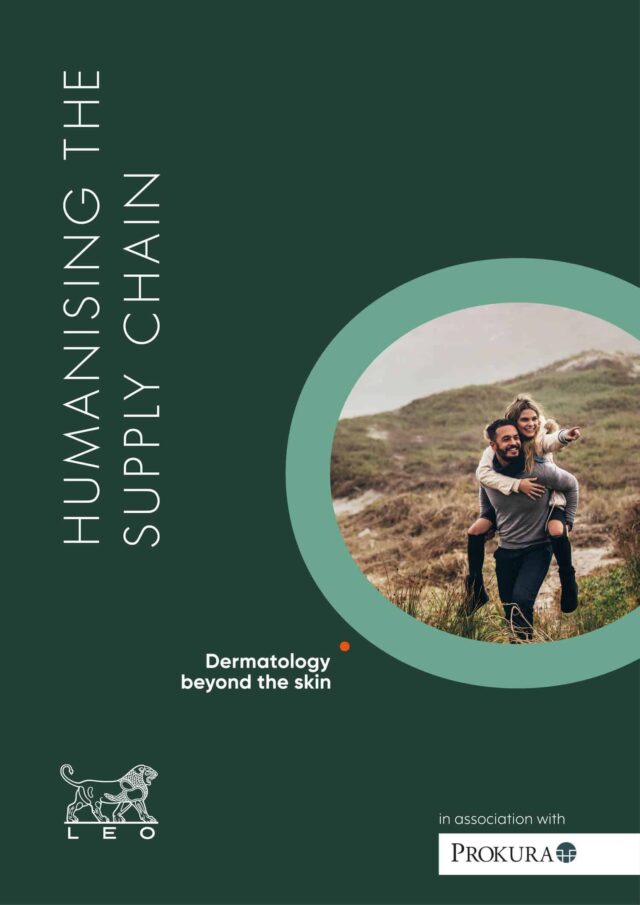RHI Magnesita (RHIM) is the global leader in refractories – its refractory products are used in all the world’s high-temperature industrial processes.
A Procurement journey
The creation of RHI Magnesita (following the merger of RHI and Magnesita in 2017) saw the continuing transformation of procurement from a cost-saving function into a strategic business partner gather pace. Michael Leitner, VP Procurement Europe & CIS & Turkey, recalls a focus on synergy savings across the business in 2018 followed by a period of consolidation in 2019.
“We did our homework to make sure the merger was a success… Joining two different worlds, we had to take the best from each and harmonise tools and processes by uniting our ERP systems. Next, we focused on digitalisation and began automating more key processes in purchasing to build on the steps we’d previously made with the outsourcing of transactional processes to our business service centers. Together with the Purchase-to-Pay (P2P) Global Process Experts and the Integrated Business Services (IBS) teams, including the Business Service Centres, we focus on further potential for improvement which is regularly identified and implemented. Our KPIs show that the involvement of purchasing is working very well, and the feedback from internal stakeholders shows positive development. I believe a well-founded category management, incorporating new and changing demands on purchasing, is the basis for the development and implementation of meaningful purchasing strategies.”
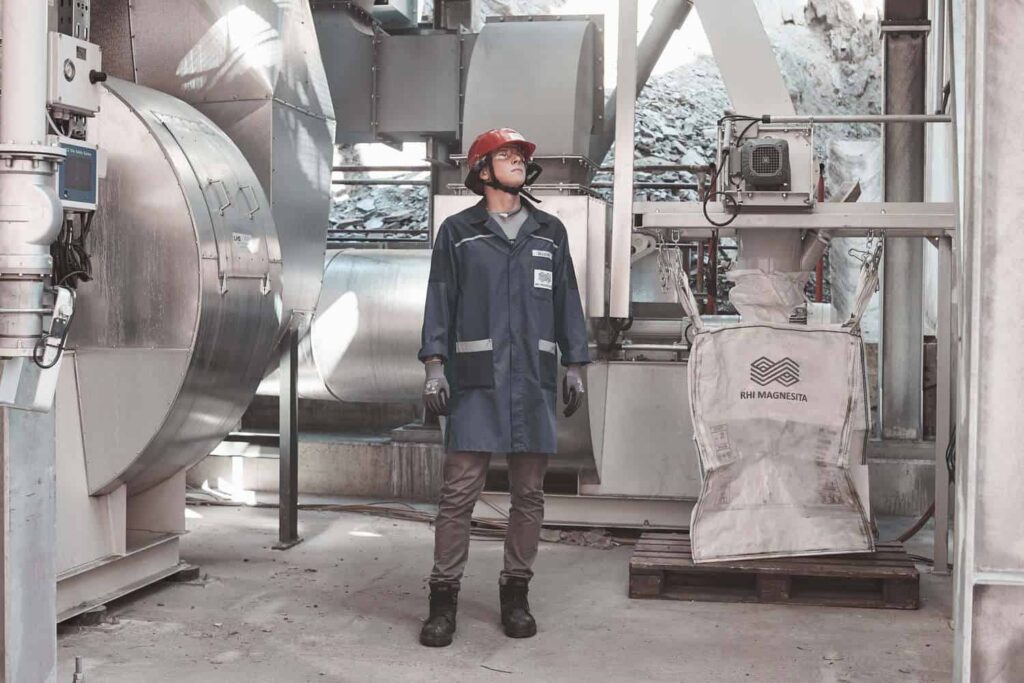
Refractories defy the most hostile conditions to stay strong and stable at temperatures of 1200°C and beyond; they contain materials safely while they’re burned, melted, blasted, fired, fused, and shaped. They protect equipment such as furnaces and kilns against thermal, mechanical and chemical stress. Without refractories, the steel, cement, lime, non-ferrous metals, glass, energy, environment and chemical industries couldn’t exist. RHI Magnesita covers all the steps of the value chain: R&D, mining and resourcing raw materials (magnesite and dolomite), producing over 120,000 products (from bricks and lining mixes to flow control products such as slide gates, nozzles and plugs), providing installation and refractory management services and closing the loop with recycling and disposal. The efficient management of procurement processes is vital to ensure that value chain can scale to meet customer demand.
Leitner’s team consists of 34 employees (located over several sites within 5 countries) who are divided into the areas of Direct, Indirect, Technical & Site Procurement and are responsible for a purchasing volume in the three-digit million range.
“Everyone is an expert in his or her field, but we also encourage job rotations and strengthen the work among each other with various knowledge-sharing meetings,” he reveals. “Diverse teams work on concrete current challenges and process improvements ensuring there is no siloed thinking with everyone involved when it comes to redefining the role of purchasing.” Because for Leitner it is not a question of if, but how quickly and above all where the purchasing function will develop. “I consider it a privilege to be able to help shape this realignment with my highly motivated team making us fit for the future and creating a positive impact to the company.” Purchasing is a passion for him and has been for more than two decades.
SAP Ariba implementation is a key element in the Digital Transformation
Today, RHI Magnesita’s procurement team is focused on digitalisation and the continued transformation of the end-to-end process with the ongoing implementation of SAP Ariba. The goal is to position procurement at the heart of the enterprise where its data and insights can inform business units. With procurement functions enhanced by digital transformation, what are the key benefits RHI Magnesita is enjoying?
“It’s all about speed,” says Leitner. “Some years ago, we made the move towards automation with business intelligence solutions enabling us to retrieve data in real time, providing and visualising it for various key processes – for example, Integrated Business Planning (IBP).”
A digital focus is also helping RHI Magnesita unite the work of its procurement intelligence experts across regions, with global functions allowing them to work together in the network throughout divisions and territories. “They work on various dashboards and we’re developing them further,” adds Leitner. “It provides a very good basis for decision-making, mainly for procurement, but also to related areas, like finance.”
RHI Magnesita’s procurement division is currently in the middle of the digital transformation of its entire global Source-to-Pay process with the implementation of SAP Ariba aiming to consolidate and control all spending in a more efficient way. “It began in 2020 with Europe as a pilot region,” explains Leitner. “Our first SAP Ariba modules were successfully implemented with a focus on supplier management and strategic sourcing whereby within procurement we’re already benefiting from the implementation of the respective module – these are all run centrally and structured so we are now united on one platform.” Currently the roll-out of these modules is taking place in other regions, starting with North America, followed by South America, and Asia-Pacific.
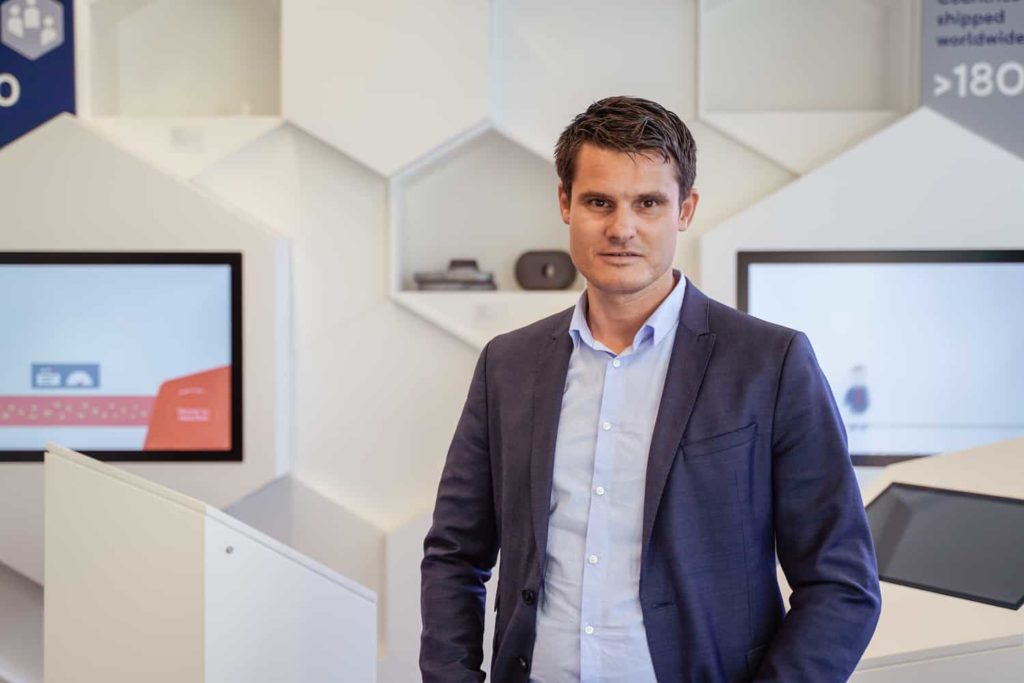
“In parallel, we’re working on the implementation of the operational procurement modules which will result in both more efficient Procure-to-Pay processes (through electronic data interchange) and improved user-friendliness for our internal requestors related to indirect spend items and services compared to existing electronic catalogs.”
This also creates advantage for RHI Magnesita’s suppliers with many sub-processes now handled digitally and in a more efficient way. “Our new landing page will offer a revamped purchasing experience going live at the end of this year,” says Leitner. “The roll-out of the guided buying and the commerce automation module to other regions will continue through 2022. The global outcome is a faster, more effective procurement process, which also applies to the cooperation with our suppliers. We’re digitising the end-to-end process to create a win/win situation for that relationship and also for our internal customers, when they’re requesting their needs.”
Does everything sound coherent and smooth? Practice shows there are many hurdles to overcome and, as is often the case with change processes, persistence and perseverance are required. Leitner sees the key to success in not getting tired of explaining the ‘why’ and to sketch and visualise the target picture again and again. “Only when it is understood and accepted WHY you do something, can you inspire the team to participate in the ‘how’ and ‘what’,” he adds.
Looking ahead, RHI Magnesita is being more proactive in its approach to emerging tech by connecting with startups to exchange information and see what they can bring to the procurement process. “How do you make better use of data for negotiations?” he offers. “We’re also looking at process mining, but for the time being we’re prioritising our digitalisation journey with a step-by-step approach to ensure a sustainable, successful implementation.”
Digital Transformation together with Microsoft
RHI Magnesita has been partnering with Microsoft for its digital transformation to significantly enhance its business model for increased competitiveness. This will enable the company to respond more efficiently to customer requests as well as changing market requirements. The goal is to make RHI Magnesita the first digital solution supplier for heat management for the industry around the globe.
In developing digital solutions, RHI Magnesita is relying on the strength of Microsoft cloud, artificial intelligence (AI) and Internet of Things (IoT) services. Inventories and supply chains will be optimised, on-site services facilitated and decisions on highly sensitive maintenance will be supported through AI. The basis for all these developments will be Microsoft Azure, which enables close connections with customers and secures exchange of sensitive data.
In purchasing, MS Teams has been utilised as a communication platform also supporting project management and many other initiatives. Especially in times of virtual working, this software has contributed enormously to the way teams can network and exchange information efficiently, even across purchasing departments. Furthermore, Microsoft Power BI is an indispensable tool for the lead buyer and enables rapid data preparation from the ERP system.
Purchasing – Balanced Scorecard
“When I took over as purchasing director for the region in 2017, we had many KPIs,” remembers Leitner. “But they were not structured and aligned with other regions across functions, finance, and our corporate values. In 2018 we newly developed the most relevant KPIs to us around our strategy; following our motto ‘less is more’ we identified four key pillars: financials, processes, employees, and (internal) customers.”
That balanced scorecard approach is helping procurement functions lead with objectives in sync with company strategy. “We’ve trained the team on how KPIs are linked to corporate goals, because at RHI Magnesita we have a transparent communication from our executive management team to the leaders and our employees. Every procurement team member knows exactly where and how each KPI is contributing to the company’s target and how their contribution makes a difference.”
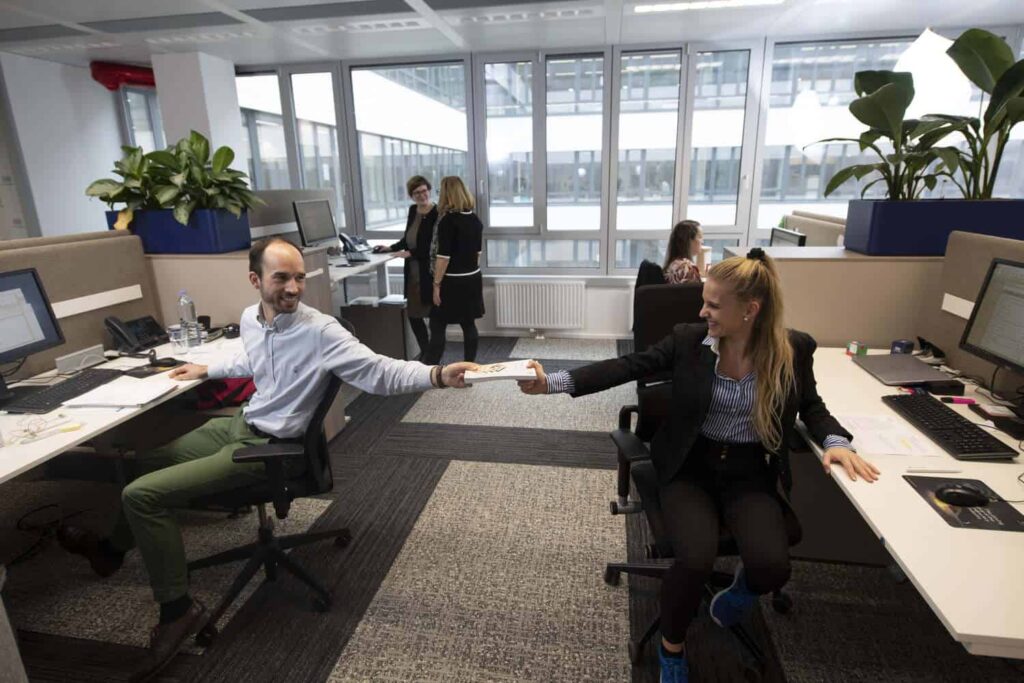
Category management is delivering to both the financials and processes pillars explains Leitner. “Ultimately, it’s about balancing resources and using them in an effective way. We’ve brought a new maturity level by rethinking and challenging our approach and our structure. We’ve encouraged category management across departments which is flexible enough to adjust when needed – during the pandemic, for example. Make or buy decisions, risk management, digitalisation and sustainability are currently playing an overriding role in numerous category strategies. This brings us the best results from both a financial and process perspective including the company’s strategic initiatives.
There is also a strong emphasis on employee training and development, as well as on interaction with internal customers and stakeholders. Structured feedback and information discussions are held with the latter and the perception of purchasing by the company and others is reflected on a regular basis. “Together with our management team, we have developed a clear plan for stakeholder communication, where we try to be challenged in order to understand what we can do better,” Leitner says. True to his motto: “If you stop getting better, you stop being good.”
Sustainable Procurement
Covid-19 and climate change have changed the way businesses operate and what stakeholders expect of them; the quest to succeed in a zero-carbon and circular economy offers a challenge RHI Magnesita is ready to meet. For example, the company is investing €50M trialing carbon capture technologies to reduce its emissions.
Focusing on the sustainability challenges most important to its stakeholders, RHI Magnesita is working towards ambitious 2025 targets for health & safety, climate change, recycling, diversity and emissions reduction. Procurement will play its part in embedding sustainability into RHI Magnesita’s purpose, culture and business processes.
“We’ve recently created a cross-regional project team coming from several areas of responsibility including both indirect and direct procurement,” explains Leitner.
“A country risk analysis is the foundation of our roadmap to evaluate suppliers based on internal factors and external sources. Based on this, recommendations for action are derived and corresponding risk scores, in which sustainability plays a significant role, are used as decision-making criteria for supplier selection. This process is also to be mapped in SAP Ariba in the near future in order to make the application and implementation both more effective and more efficient”.
Promoting Diversity
RHI Magnesita aims to build a highly diverse organisation where everyone feels welcome and valued, regardless of gender, age, nationality, ethnicity, religion, disability, sexuality or any other difference.
“Years ago, a buyer in a technical company like RHI Magnesita was typically seen as a male,” notes Leitner. “Today, a third of these positions in my team are held by women and beyond that, RHI Magnesita has also set targets at senior management level to increase the share of women accordingly. We also have a diverse setup based on the nationalities represented in our team. For each and every new hire, we are challenging ourselves to try to create the most diverse setup possible, following the corporate strategy.”
Leitner believes that, when it comes to diversity in procurement, the SAP Ariba project, now running for three years, is a prime example of how people of different genders and backgrounds can work together successfully on a large collaboration. “Though the pilot started in Europe, colleagues from the other regions have been involved from the beginning and global and regional units also work together excellently. As project management sponsor, I act as a link between project owner and manager and support the team where necessary. It is a pleasure to see how a complex and large task is mastered by an intercultural team.”
Numerous nationalities are also represented at the company’ global purchasing hub in the Netherlands, which acts as an interface to the regional purchasing functions. “The cooperation here also works very well, and the two areas complement each other excellently,” says Leitner. “’Agile, connected and empowered’ is the motto for the global and regional purchasing areas, including the associated Business Service Centres.”
Positioning Procurement for success
Since 2018, RHI Magnesita’s procurement teams have delivered a harmonisation and optimisation of the purchasing process resulting in a very low level of maverick buying as purchasing has become integral to the added value procurement can bring.
“We’re using multi-vendors, or a master vendor for some services areas,” says Leitner. “We identified areas like MRO, where we had too many suppliers through a previous focus on negotiating and cost reduction, to focus more today on process costs and process efficiency; we’ve been able to replace hundreds of suppliers with new key partners.”
Leitner stresses these partners are not simply suppliers reacting to purchase orders but regularly visit RHI Magnesita’s plants to collaborate on cost-reduction initiatives, increased lifecycle times for products and energy cost-savings, to highlight a few examples. “They’re also supporting us by having stock on their side, or implementing consignments stocks,” he adds.
From an organisational perspective, Leitner is proud RHI Magnesita has buyers located in several countries given the responsibility to carry out purchasing tasks on site. “In the beginning, not everyone agreed with handing over the buyers at the site to the regional purchasing organisation, but now the great advantage of a strong purchasing community and network is seen everywhere. It’s an example of how we have redefined the role of site procurement.”
Leitner believes RHI Magnesita’s company culture, with its focus on collaboration, is driving a purchasing culture that allows procurement teams to work from the perspective of customers and internal stakeholders. Often pragmatism is required and the added value for the company is greater if the focus and resources are placed more on innovative solution management.
“We are in a state of change and, through adapted guidelines we are giving our employees in purchasing more space and room to manoeuvre in order to set the right priorities,” explains Leitner. The importance of empowerment is paramount. “Our buyers can go beyond negotiation and cost reduction to deliver innovative solutions from interactions with the supplier market which ultimately questions need and asks what we can do better to offer the timely alternatives that allow procurement to contribute even more to the company’s success.”
